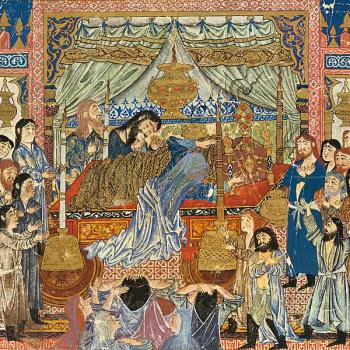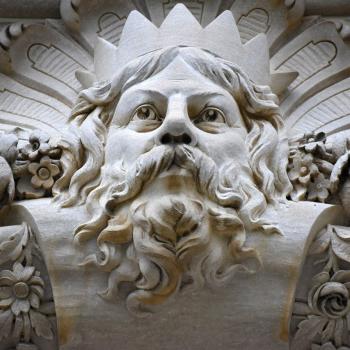One of the few things I still enjoy about the Olympics is the quadrennial question: "Will the U.S. team dip its flag this time, like the other countries do, during the opening ceremony?" Websites discussing this tradition say different things about it, but the sound-bite version is that the U.S. simply doesn't do this. Some people think this is a good thing, while others disagree. Those who come out against this tradition usually use the words pride and arrogance in their arguments, as if these were bad things.
The usual reason for being Heathen is that you find something about the mythic base compelling. Another good reason is that the morality attendant on those myths makes more sense to you than what you encounter elsewhere.
For example, there is Pride, the positive recognition by the self of things done well, and of abilities contributing to those things. One of my favorite writers said that well-earned pride is the crown jewel of a lifetime. So why is Pride something that some religions rail against? Does this make any sense at all?
Look up "pride" in the dictionary and you'll see the problem. This is one of those words that have several definitions, and several of those are easily negative: conceit, vanity, and pomposity are but a few. And some forms of pride describe whole spectrums of behavior, some excellent at one end and not at the other. Our language, or perhaps just our careless use of it, hobbles us by throwing all these meanings together under one word.
You can tell a lot about a person, or a religion, by which meaning is usually floating on top of their mental vat of vocabulary. What assumptions are being made about what's important in life? How hard do you have to work to get around those assumptions and talk about something else? Or are some words just too loaded to allow real discussion of their alternate meanings?
One of the opposites of Pride is Humility, which gets a lot of good press in some religions. The root word here is humus, a synonym for dirt. Think about that for a moment.
Apologists for Humility will try to tell you that that's not what is meant. I look these people in the eye and tell them that's exactly what is meant. And I'll ask you, when you run into Humility fans, to note just how much Humility they actually seem to have inside, whatever coat of paint they're driving around in. The advantage to them is that, when you can't pronounce the word Pride without having people assume a bad meaning, it has just become easier for them to rule you.
A related word is Arrogance. I've been watching this word in dictionaries for a long time. My eighth-grade English teacher introduced me to the word histories found in good dictionaries; it surprised me to notice that they don't all agree. Arrogance provides a case in point. My online dictionary says it comes from a Middle English word meaning "claiming for oneself." Some other dictionaries I've seen say the root word is rogate, a much older word having to do with voting. This root word is the basis for prerogative, for example, which was originally about those who got to express their opinions first. If this origin is correct, then one might reasonably conclude that an arrogant person is one who doesn't take a poll before deciding what he thinks. In other words, this is someone with an independent mind. And this is supposed to be bad?
In my professional life, one of the things I do is build teams of software engineers for R&D projects. An important criterion I look for in these folks is a fair amount of arrogance. When you're heading off into the unknown, it helps to believe deeply, even reflexively, that you'll actually get somewhere worth going. And, by the way, I love these people. They're fun to be around as they're creating tomorrow.
Of course, the Pride and Arrogance I'm talking about here have responsibilities that go along with them. Pride has to have something real and proportional to back it up. Pride can't be inherited; you have to work for it, and the result of your work has to be for the good. And your Pride can't be forcibly exchanged for my Respect, something the bullies of the world like to hope you don't know, while they try very hard to keep from knowing it themselves. As for Arrogance, how do you deal with being wrong? Do you shout and make excuses, or do you change course and go looking for what's right, determined to find it?
If you know the Northern Pantheon, the Aesir and Vanir, either in story or personally, think about them now and reflect on Pride and Arrogance, with all their benefits and costs. One way I know I'm Heathen is that Pride and Arrogance mean to me what I've been talking about here first.
An early U.S. Olympic athlete said that "this flag dips for no earthly king." As a Heathen, I would have said something different, something including the phrase "no one and nothing." Making that into a good thing is a big responsibility, one we don't always succeed at. But the next time someone tells you, especially during the upcoming election cycle, that the United States is a Christian nation, remember the Olympics and the flags, and ask yourself which religion's outlook on Pride and Arrogance is really at home here. Are we about living low, down in the dirt? Whatever good we are or have done, is that how we did it? I don't think so.
Whoever you are, wherever you live: Stand up!
Hail Thor!
6/15/2011 4:00:00 AM





